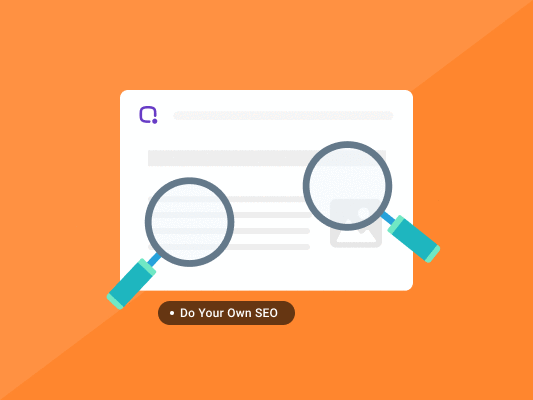For small business owners who don't have a big marketing budget, don't worry! There are many DIY SEO techniques you can do on your own. This post will share with you the 8 tips on doing your own SEO.
Do not have a big marketing budget for SEO?
Well, do not worry!
There are many DIY SEO techniques that you can do without undergoing any form of training.
Yes, you got that right!
And here’s a true story as an example.
Three years ago, I have a friend (let’s call him John) who was working for a new establishment trying to market recliner sofa sets.
Because it was new in the market, they did not have a big budget for marketing.
Similarly, no one in the start-up had an idea about SEO and marketing.
John had just graduated with a master’s degree in Literature and had read a few books on marketing during his free time.
In the eyes of the company’s management, John was the best to handle the SEO area, so they give him the role.
Having no money and knowing nothing about SEO, he started reading a few blogs about SEO.
He then tried to apply some of the techniques the blogs had suggested.
Within no time, he managed to rank the website for some of the keywords related to the sofas they were selling.
That said, this true story is not meant to awe you.
It is intended to inspire you.
With the right guidance and tools, anybody can do SEO successfully.
To help you implement an effective DIY SEO strategy, here are 8 SEO tips that you should try before hiring an SEO agency.
DIY SEO Tips
1. Perform Your Own Keyword Research

Keyword research is at the core of every noble SEO strategy.
It helps you to:
- Identify phrases and words real searchers are using.
- Know the keywords to target.
- Measure demand for products.
Marketers today use the words and phrases of their brand and industry when targeting customers.
So please do not assume that you know what customers need and how they do research.
So how can you figure out the best keywords to use?
There are many keyword research tools online that show demand scores for every keyword.
Google Keyword Planner is a good example.
While it is free, you must have an active Google Ads account to access the data.
Also, most of the information you will get is mainly from Google and not other search engines.
Other reliable keyword research platforms give detailed data from all the search engines unconditionally though they require paid subscriptions.
BiQ’s Keyword Intelligence tool is a good example.
It will show all the necessary keywords with crucial insights like the searchers’ intent, how many people searched for a particular keyword, and so on.

If you are sure, you can filter the given keywords based on value.
High valued keywords can bring in people to your site at low competition.
Use the tool to quickly do comprehensive keyword research.
Know which phrases and terms your audience usually uses when searching for your product and then developing content based on the insight.
Grid My Business is another good example.
It can identify which search queries your business is ranking for along with its local search ranking. You can decide on which search queries you want to rank higher for or discover new search queries you can rank for. You can also discover your local competitors and follow what search queries they rank for so you can incorporate them in your own website as well.
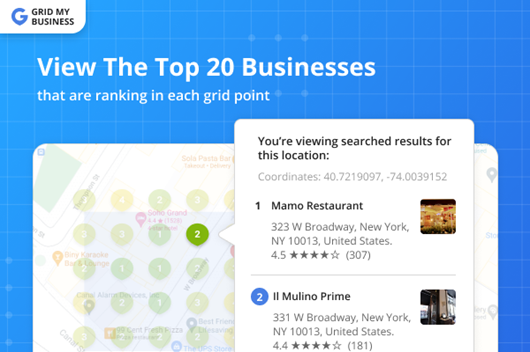
2. Do On-Page SEO

On-page SEO helps Google and other engines evaluate your site and determine if it answers users’ queries flawlessly.
In other words, on-page SEO is the process of optimizing web pages to enhance a site’s ranking in search engines and attract traffic.
Besides publishing quality content, on-page SEO also entails optimizing images, HTML tags, and headlines.
Now, Takeshi Young, an SEO expert said you should do this when optimizing your web pages.
“Make sure the keywords you identified are incorporated in your page’s title, within the URL and the body copy.”
Search engines are getting savvy about determining what a page is all about.
So make sure they know what keyword your is about.
Here some on-page SEO tips.
Title Tag

Use your main target keyword at the start of the page title tag.
Actually, the initial 64 characters or less of a title tag are the ones that pop-up as the click-through link in search engine results.
So, make sure each page has a unique page title tag.
Meta Description

The is the part that appears below the title tag in search engine results.
Include at least two keywords that describe what the page is all about and keep it under 160 characters.
Meta tags and descriptions play a big role in increasing your site’s click-through rate.
So make sure your meta descriptions are managed and written well for SEO optimization.
Ensure the tags intelligently read in an active, non-spammy, and natural way.
Do not just use the right keywords; create a good description that searchers will want to click through.
It should be relevant to the page’s content and different from descriptions of other pages on the site.
Do not copy meta descriptions and avoid using quotation marks in the meta description.
Most search engines, particularly Google, cut them off.
H1 Tag
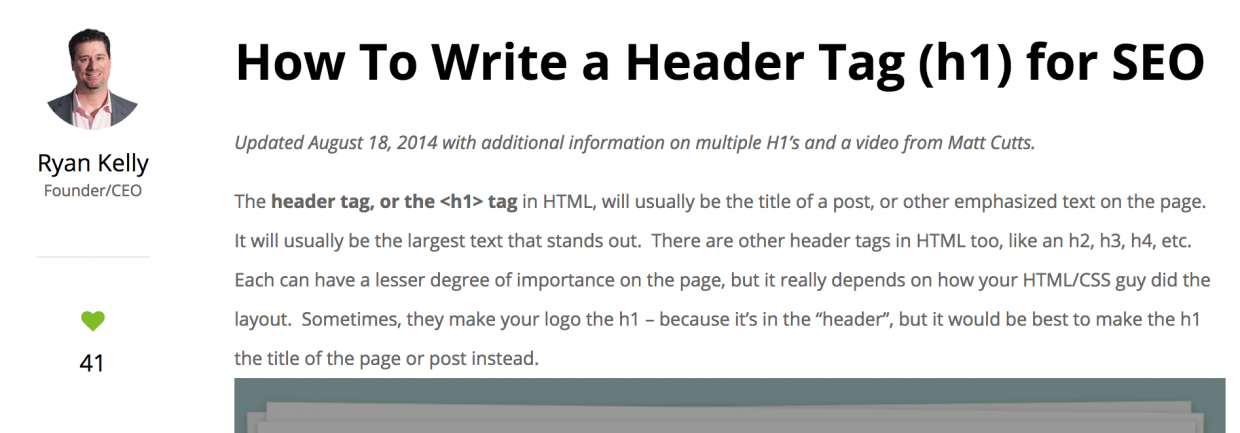
This simply refers to the main header.
Every page should have an only H1 tag.
And it must not only describe the page but also appeal to users.
Alt Tags
These are the descriptions that pop up when you hover your mouse on an image.
It is highly recommended that you use the target keywords and variations in the image name as well as the alt text.
Also, remember to use the target keyword at least once at the beginning of the page and somewhere else it makes sense within the body.
3. Create Relevant Content, Make Sure It’s Easy To Read
Content can be an influential and effective SEO tool if it is relevant.
So, go the informative way and give your readers valuable and useful content about a certain product, service, or project.
Make the content alluring interesting, thorough figures, facts, and funny anecdotes or analogies.
If your content has a goal that readers can relate to, you can easily stand out in a crowd.
Position yourself as a leader in the industry and prove to search engines that you have something useful to share with readers.
Now that you understand the importance of useful content, let’s dive into how you make the content relevant.
There are many reliable tools online that can help you fine-tune and analyze your content.
One of these is BiQ’s Content Intelligence tool.
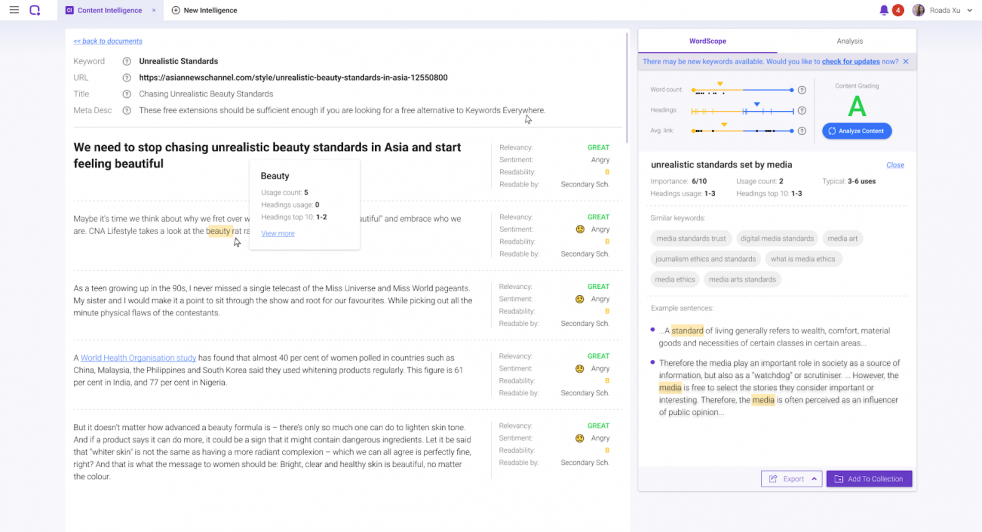
Just write or copy and paste your content inside the block editor, and it will give you interactive writing tips to help you come up with relevant content.
You will also be able to see content grade (how good your content is) and the keyword count that shows you how useful or relevant that content is.
Another important aspect of optimizing your content for Google is making sure it is readable.
Ensure the content is very easy to skim and read to keep readers around for a while.
Tips To Make Your Content Readable
- Limit many long sentences
- Use headers and paragraphs to break up the text.
- Choose simple alternatives to sophisticated words.
- Avoid passive voice
4. Link Building
Links are one of the main ranking factors.
That’s why link building plays a big role in SEO.
It is about utilizing innovative strategies to link to and to get other sites to link to yours.
There are two main link building techniques that you can use to build links.
Community Website Linking
Community websites are generally sites where your audience discusses trade tips, topics, and also ask for help.
Nonetheless, note that most of the links are not followed.
This means they cannot be followed.
That’s not a bad thing, though.
Promoting your site enhances exposure, and more signals can easily lead to links.
Participate in discussions in forums such as Quora, Reddit, and so on.
Deliver value, befriend others, and you will have a good opportunity to promote your site.
Duplicate Your Competition Backlinks
Are your competitor’s links more than yours?
Replicate them!
Just find out who is linking to the other than you and then figure out a way to duplicate the links.
They are linking to your competition.
And the odds of them linking to you, too, are very high.
The best way to approach this is through an online tool known as link intersect.
It will help you know who is linking to your competitors apart from you.
Such links not only play a vital role in enhancing your rank on search engines but also increases your traffic and brand signals.
5. Fix Technical Issues
When doing your own SEO, ensure that you also optimize your technical SEO.
The technical part of SEO refers to various back-end websites and server adjustments that make it easy for visitors and web crawlers to understand and use a site.
It is optimizing your site to meet all the technical specifications of Goggle with the main objective of enhancing organic rankings.
Fixing your technical aspects can also help boost the user experience for customers.
Common technical that you should check to include:
- Canonical tag issues
- Duplicate content
- Blocked pages with robots.txt
- Wrongly configured URLs
We have a post entirely about technical SEO if you would like to know more about it.
6. Understand Your Competitors
According to Adam Barker, an SEO expert, “It is important to only optimize your site for keywords that matter to your site.”
To achieve this, create a feasible keyword strategy.
Then identify your main competitors for each keyword as well as what they are doing differently to rank.
BiQ Rank Intelligence is a simple and cost-effective tool that can help you get insights into your competition’s organic and paid search initiatives.

To start, create a profile using your competitor’s URL.
Then, set the parameter according to your needs to create your own view.
Maybe you’re looking to “steal” their keywords that they currently rank in the top 20.
Once you’ve created your view, you can export any data necessary.
That said, be careful not to 100% rely on the information you find about your competitor.
Let the data help you boost your SEO.
7. Build Your Social Media Network

Another way you can do your own SEO is to establish your social media network.
If your business is not on social media, then it does not exist.
Or if it does, then you are missing out on a lot.
Facebook alone has over 2.41 billion users while Twitter has over 330 million users worldwide!
And that doesn’t even include Pinterest, LinkedIn, and Instagram.
A study by HootSuite suggests that there is a relationship between high rankings and social media presence.
That’s why you will notice that any content that ranks high in search engines also has a lot of retweets, likes, and shares.
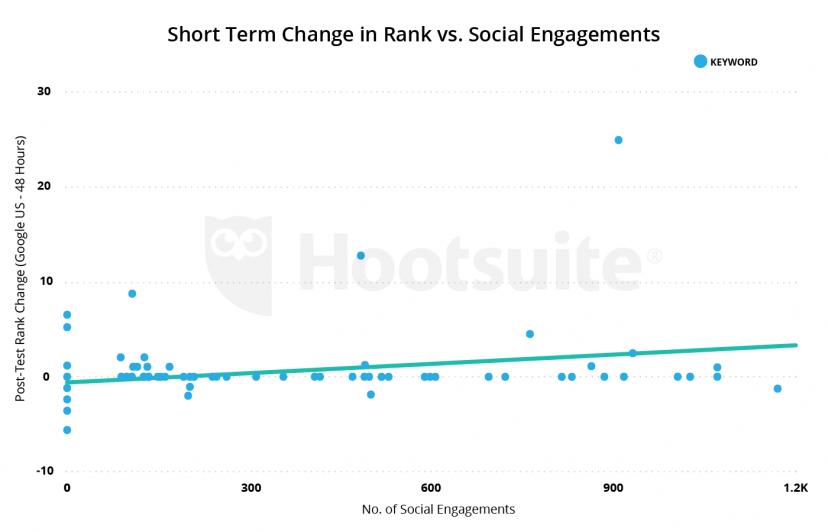
Other ways in which social media affects SEO:
- Enhanced visibility
- Enhanced traffic to your site
- More brand recognition and authority
- Enhanced local SEO
- Longer and broader content lifespan
So, use these platforms to reach a wider audience and build your brand signals.
Create your brand’s pages on social media channels, join pages, follow people, engage customers to enhance your presence on social networks.
8. Stay Up To Date
SEO and Google algorithm change frequently.
That means to stay on top, you must be up-to-date with news, new concepts, and trends.
You can sign up on or check out websites like Search Engine, Search Engine Watch, and other leading SEO websites.
You can also follow SEO experts like BiQ, so you can always tweak and do your own SEO.

Bottom Line
Search engine optimization may take a while.
You may not see improvements in your ranking overnight.
So do not give up if you do not see results immediately.
A keyword’s competitiveness and popularity can change over time.
So recheck your target keywords often to determine if they will still attract traffic.
Similarly, do not just use these DIY SEO tips once and expect your traffic to jump through the roof.
Make it your goal to keep the tips in mind regularly or when you update, redesign, or launch a new site.
Depending on the demands of your sector and your brand’s resources, you may want to get in touch with an SEO consultant or firm to help you get the most out of your SEO efforts.
BiQ can also help here with their SEO tools.
But one thing’s for sure, doing your own SEO is much easier than you’d expect.
Good luck!



